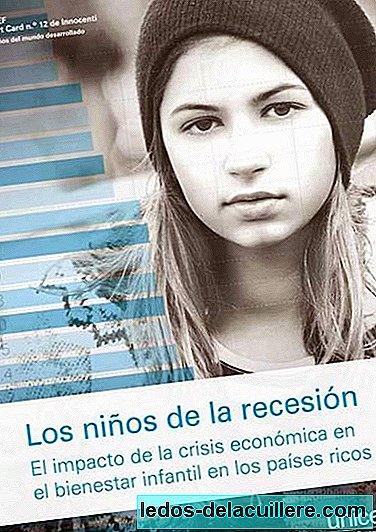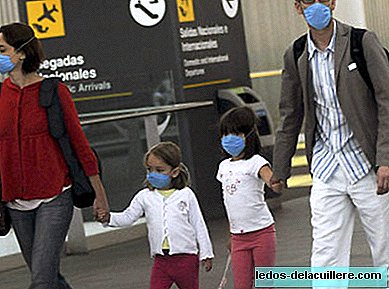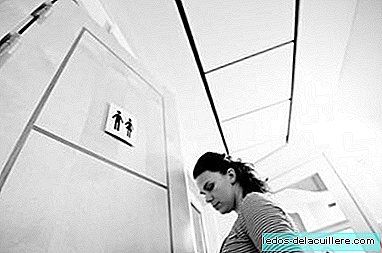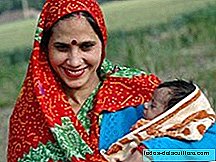
The report is being provided right now “Children of the recession: the impact of the economic crisis on Child Welfare in rich countries” (Report Card 12 of Innocenti, UNICEF Research Center), in which Gonzalo Fanjul has participated as an independent consultant.
The data and observations of this report, which highlights the close and multifaceted relationship between the impact of the Great Recession on national economies, and the deterioration of child welfare since 2008.
In the countries most punished by the recession, children are the ones who are suffering the most, and those who will suffer them for longer

"Children of the recession ..." presents a ranking of 41 OECD and EU countries, depending on whether child poverty levels have increased or decreased since 2008. They are also analyzed the responses provided by countries in child protection, it is reported that “in 2010 most countries went sharply from a policy of budgetary stimulus to budget cuts, and the negative impact on children was swift, especially in the Mediterranean region.
While it is true that in some countries early economic stimulus programs have been adopted, which have proven their effectiveness in protecting children.
This document also tracks the proportion of young people between 15 and 24 who neither work nor study, nor receive training. The recession has hit especially hard with young people aged 15 to 24, with the NINI Rate growing dramatically in many countries. In the European Union, 7.5 million young people (almost equivalent to the population of Switzerland) were classified as NINI in 2013.
What future awaits forgotten children in the global response to the Great Recession? If the neglect persists, the crisis will continue to punish children long after any economic recovery. The long-term welfare of our societies is at stake

The impact of the crisis on child welfare
In 23 of the 41 countries analyzed, child poverty has increased since 2008. In Ireland, Croatia, Latvia, Greece and Iceland, it has grown by more than 50%.
Jeffrey O'Malley is director of global policy and strategic for UNICEF, and the assessment is that the impact on children will have prolonged consequences for themselves and their communities; after the countries in which they live have taken a "leap back" in terms of household income.
UNICEF research shows that the soundness of social protection policies was a decisive factor in poverty prevention.
All countries need strong social protection networks to protect children in bad times and good times. Rich countries should set an example, explicitly committing to eradicating child poverty, developing policies to counteract recessions and making child welfare a high priority. "
And if, previously, strong protection policies had been applied (reinforced after the Recession), millions of children could have received help. Because today it has caused suffering and exposed to lifetime risks to numbers of children counted by hundreds of thousands.
Depending on which country we talk about, child poverty has decreased
Although in the United States (for example) extreme child poverty has increased more than during the 1982 recession, social protection network measures have given poor support to poor working families, less effective for those without jobs. In 34 of the 50 states, child poverty has increased.
But In 18 countries, child poverty declined, sometimes significantly. Australia, Chile, Finland, Norway, Poland and the Slovak Republic reduced their rate by around 30%; The report has found that the social policy responses of countries in similar economic circumstances varied significantly, with different impacts on children.
The data and observations of this Innocenti Report Card show a close and multifaceted relationship between the impact of the Great Recession on national economies and the deterioration of child welfare since 2008. You can check it here.
Regarding the situation in our country, the report confirms the analysis collected by the Spanish UNICEF committee, and shows how it is essential to adopt a State Pact for Children, in order to reverse the trend, and to shield the rights of children in our country.
Children of the recession: the impact of the economic crisis on child welfare in rich countries is the twelfth of a series of annual reports published by Innocenti, the UNICEF Research Center.
For the analysis of the data, different sources with origin in the different countries have been used (Gallup, national surveys, OECD reports, etc.).
Video (in English) | "A generation cast aside" (the lost generation) Innocenti Office
More information | UNICEF Spanish Committee, Children of the recession
In Peques and More | Poverty and social exclusion of children should be approached from a child rights approach. Child poverty rates in Spain among the highest in industrialized countries












